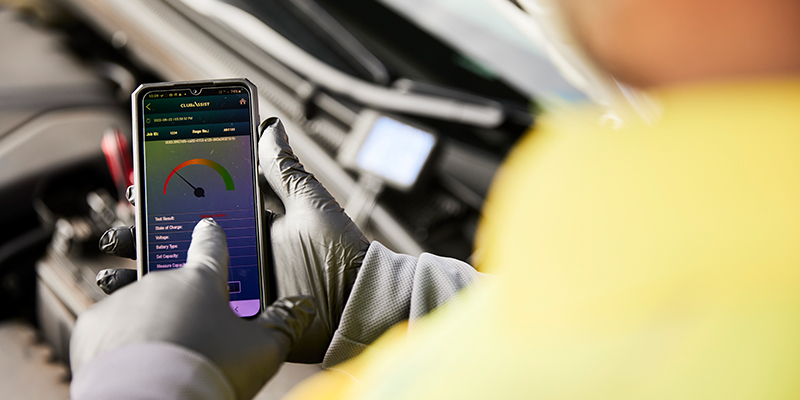
| Summary |
|
When you turn the ignition key to start your vehicle, everything depends on the battery hidden somewhere in your car's engine compartment.
Car batteries usually don't have to work hard in warm weather, but when wintery conditions arrive, the engine is harder to turn over, causing extra strain on the battery. With over 417,000 flat battery callouts responded to last year, our NRMA roadside assistance and battery technicians have seen it all so you can trust our experience to get you back on the road safely.
However, there are some things you can do to prevent issues and extend your battery's life.
Most batteries in new cars should last three years on average and a cold snap will sort out the good from the bad!
A typical lead-acid battery works by using lead plates submerged in an electrolyte solution, creating a chemical reaction that generates electricity and delivers power to the battery terminals. Heat accelerates this chemical activity but also speeds up the internal corrosion, which reduces the lifespan of your battery.
This is particularly true of batteries that repeatedly reach high internal temperatures, and once capacity has been damaged by heat, it can’t be restored. But just as heat speeds up chemical reactions, cold temperatures slow them down. That’s why you might feel your battery can become sluggish in winter, even though its state of charge may remain unchanged.
At colder temperatures, the battery’s ability to provide sufficient power to start and run a vehicle is diminished. Automotive batteries are rated in CCA (Cold-Cranking Amperage). This refers to the amount of current a battery can supply for 30 seconds at -18°C before its voltage drops below a specified limit.
A fully charged lead-acid battery can survive up to -50°C, but a battery with a low state of charge can freeze at -1°C. When the water in a battery freezes it expands and can cause irreparable damage to the cells.
We recommend that car owners start paying close attention to their batteries after three years of installation. If your battery is starting to go, the first thing you'll notice is that the car sounds sluggish when trying to start. This is a warning sign that shouldn't be ignored.
If you hear sluggish sounds when you start up your car, do not immediately assume that the battery needs replacing. Check that the battery connections are tight and that the wires are not broken or disconnected. Also ensure that your terminals are clean - you can get them cleaned during every major service so ask your mechanic.
If your battery has caps, remove them and check that the fluid inside is about 5mm above the plates, or between the levels as indicated on the battery case. If low, top up with deionised water and avoid overfilling. Mop up any spillage. Some batteries are permanently sealed and do not require maintenance, so you won't be able to check the fluid if this is the case.
If you are in any doubt, contact the team at NRMA Batteries for help.
Regular testing of your car battery can help to catch potential issues early, not just when symptoms arise. NRMA technicians recommend testing your battery at least once a year to prevent unexpected failures. If you’re still experiencing issues like hard starts or unexpected dashboard warning lights - even after performing the recommended checks - seek expert help to uncover any underlying problems.

Know the current health status of your car battery with a battery health check. Credit: The NRMA
The NRMA offers free battery health checks for Members to ensure you can identify battery issues before they become worse. An expert technician will visit you to diagnose battery issues proactively and give you the the test results, providing clarity on your battery's health and lifetime expectancy. If any problems are detected during the test, the specialist will explain your options so you can make an informed decision. There's no obligation to purchase a new battery after the health check.
Should you need a replacement battery, we carry an extensive range of high performance battery options, all backed by nationwide warranties, and we responsibly recycle your old battery for you. Don't let winter catch you off guard - use our expert services to keep your car running smoothly in the cold.